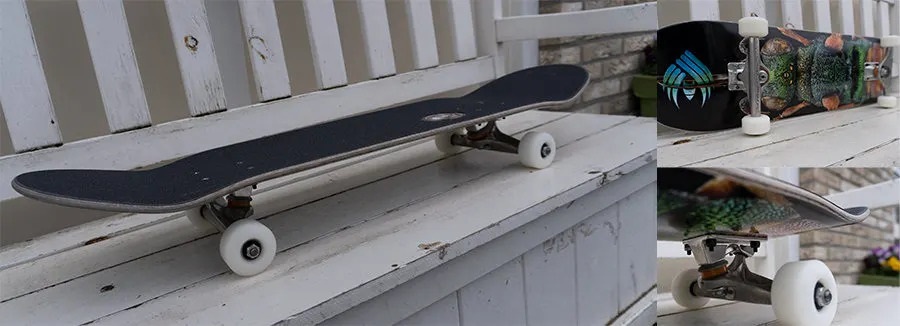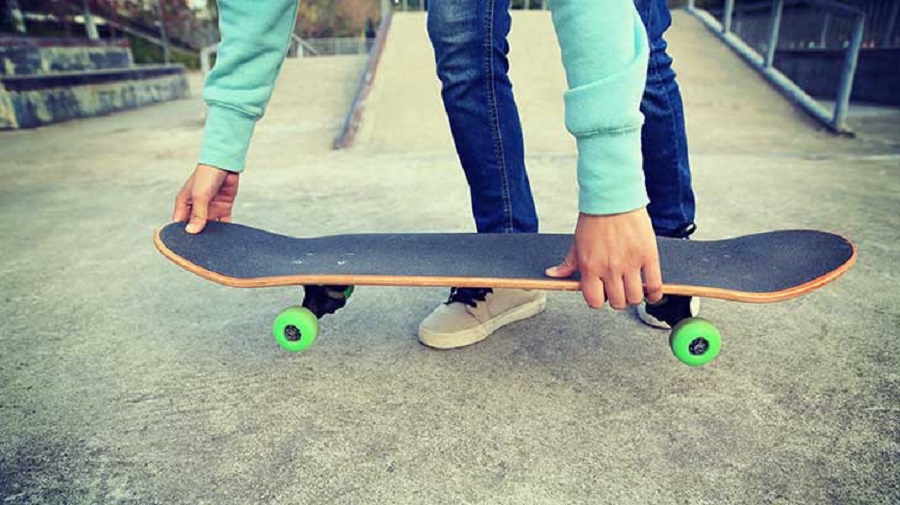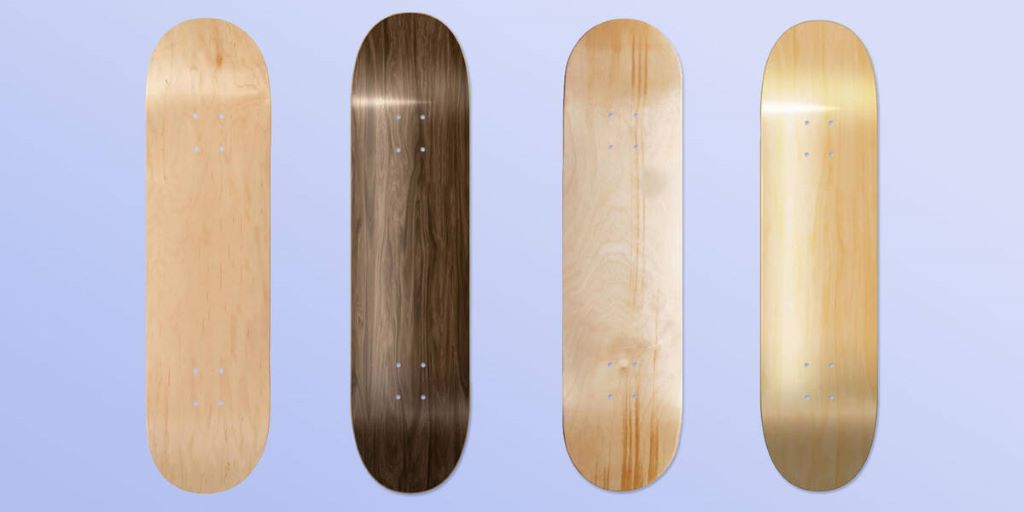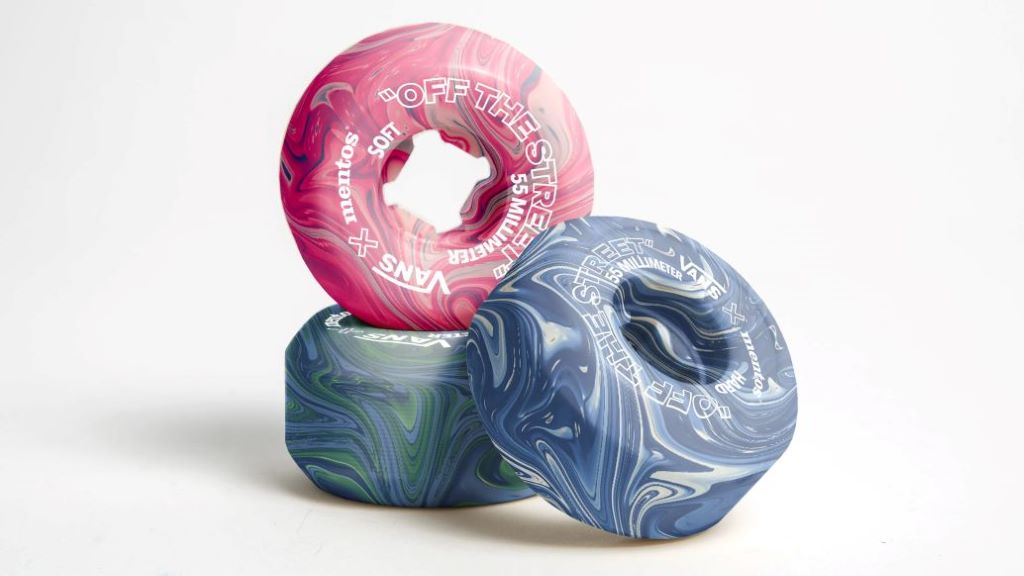Skateboarding is an exhilarating sport enjoyed by millions around the world. Whether you’re a beginner or a seasoned pro, the weight of your skateboard plays a crucial role in your overall performance and experience on the board. In this article, we will explore how much does a skateboard weigh and how to choose the right weight of a skateboard.
Skateboard weight refers to the total mass of the skateboard, including its deck, trucks, wheels, and any additional components. Understanding the weight of your skateboard is essential as it can significantly influence your ability to perform tricks, control the board, and overall skateboarding experience.
What is skateboard weight?

The weight of a skateboard is determined by the combined weight of its various components. The main components contributing to the overall weight of a skateboard are:
- Skateboard Deck Weight: The deck is the flat board on which a skater stands. It is typically made of wood or composite materials. The weight of skateboard deck varies depending on its size, construction, and materials used. Lighter decks are usually preferred for technical tricks, while heavier decks offer stability and durability.
- Skateboard Trucks Weight: Trucks are metal T-shaped structures mounted underneath the skateboard deck. They hold the wheels and allow the rider to turn. The weight of the trucks depends on their size, materials, and design. Lighter trucks provide better maneuverability, while heavier trucks offer stability at higher speeds.
- Skateboard Wheels Weight: Wheels are crucial for smooth rides and performing tricks. They are made of urethane and come in various sizes and durometers. Lighter wheels are typically preferred for technical tricks, while heavier wheels offer better speed and stability.
- Additional Components: Additional components such as bearings, riser pads, grip tape, and hardware also contribute to the overall weight of the skateboard, although their weights are relatively minor compared to the main components.
How Much Do Skateboards Weigh?
You must know the cost of a skateboard. The weight of skateboards can vary depending on various factors, such as the materials used, the size of the deck, and the components attached to it. A standard skateboard typically weighs between 2.2 to 4.5 kilograms (5 to 10 pounds).
Here are some examples of skateboard weights:
- Traditional Skateboards: Standard skateboards used for street and park skating usually weigh around 2.3 to 3.6 kilograms (5 to 8 pounds). These boards have a wooden deck and components like trucks, wheels, and bearings.
- Cruiser Boards: Cruiser skateboards, designed for cruising and transportation, are often slightly heavier due to their larger size and additional features, such as larger wheels and wider decks. They typically weigh between 2.7 to 4.5 kilograms (6 to 10 pounds).
- Longboards: Longboards, primarily used for cruising and downhill riding, are longer and wider than standard skateboards. They can weigh anywhere from 2.7 to 5.4 kilograms (6 to 12 pounds), depending on the specific design and materials used.
It’s important to note that the weight of a skateboard can also be influenced by individual preferences and customization choices. Some skateboarders prefer lighter setups for technical tricks and maneuvers, while others prefer slightly heavier boards for stability and durability.
Factors that affect skateboard weight
Several factors influence the weight of a skateboard, and understanding them can help you make informed decisions when choosing or customizing your setup.
– Skateboard Deck Weight
The weight of the skateboard deck depends on various factors, including the type of wood or composite materials used, the construction method, and the deck’s dimensions. Different skateboard brands and models may have varying deck weights, so it’s important to consider this aspect when selecting a skateboard.
– Skateboard Trucks Weight
Trucks are essential for turning and maintaining stability on the skateboard. The weight of the trucks is determined by the materials used, such as aluminum or titanium, and the size and design. Lighter trucks offer better maneuverability, while heavier trucks provide stability at high speeds.
– Skateboard Wheels Weight
Wheels play a crucial role in determining the skateboard’s performance. The weight of the wheels depends on their size, durometer (hardness), and the materials used in their construction. Lighter wheels are more responsive to tricks, while heavier wheels offer better speed and stability.
– Additional Components
While the individual weights of additional components like bearings, riser pads, grip tape, and hardware are relatively minor, they still contribute to the overall weight of the skateboard. Choosing lighter versions of these components can help reduce the overall weight of your skateboard.
Ideal weight for skateboards
The ideal weight of a skateboard depends on various factors, including your skateboarding discipline, personal preferences, and intended use. Here are some considerations for different scenarios:
– Skateboarding Disciplines and Weight Preferences
Different skateboarding disciplines have varying weight preferences. Street skaters focusing on technical tricks often prefer lighter skateboards as they provide better control and maneuverability. On the other hand, vert skaters or downhill riders may prefer slightly heavier skateboards for stability and speed.
– Lighter Skateboards for Tricks and Maneuvers
A lighter skateboard can be advantageous if you’re primarily interested in street skateboarding and performing technical tricks. Lighter decks and wheels make it easier to flip the board, spin, and perform aerial maneuvers. The reduced weight allows for quicker movements and more precise control.
– Heavier Skateboards for Stability and Speed
A slightly heavier skateboard can provide better stability and control if your skateboarding style involves high-speed riding, downhill racing, or vert skating. The added weight can help dampen vibrations, maintain momentum, and confidently handle higher speeds.
How to choose the right skateboard weight
Choosing the right skateboard weight involves considering your style, body weight, and desired performance characteristics. Here are some factors to keep in mind:
– Consider Your Skateboarding Style
Understanding your skateboarding style and the type of tricks or maneuvers you prefer is crucial when choosing the right weight for your skateboard. Consider whether you prioritize technical tricks, high-speed riding, or both.
– Skateboard Weight and Rider’s Body Weight
Your body weight can also play a role in determining the optimal skateboard weight for you. Lighter riders may prefer lighter skateboards for better maneuverability, while heavier riders may benefit from slightly heavier setups for stability and durability.
– Balancing Weight and Durability
While lighter skateboards can offer advantages in terms of maneuverability, it’s essential to find a balance between weight and durability. Extremely lightweight skateboards may be more prone to breakage, especially if you skate aggressively or perform high-impact tricks. Consider the durability of the components when choosing a skateboard weight.
Common misconceptions about skateboard weight
There are some common misconceptions about skateboard weight that are worth addressing:
– Myth: Heavier skateboards are always better
While heavier skateboards can provide stability and speed, they may not suit all skateboarding styles. It’s essential to consider your preferences, intended use, and personal comfort when choosing a skateboard weight. Lighter skateboards offer advantages in terms of maneuverability and technical trick performance.
– Myth: Lighter skateboards are more fragile
While lighter skateboards can be perceived as more fragile, advancements in skateboard manufacturing technology have made lightweight setups durable and reliable. It’s important to choose quality components from reputable brands to ensure the longevity and performance of your skateboard, regardless of its weight.
Tips for reducing skateboard weight
If you’re looking to reduce the weight of your skateboard, here are some tips:
– Choosing Lightweight Components
Opt for lighter skateboard decks, trucks, and wheels made from materials that prioritize weight reduction without compromising performance and durability. Aluminum trucks, composite decks, and urethane wheels with lighter cores are popular choices.
– Customizing Your Setup
Consider customizing your skateboard to reduce weight. You can choose lighter grip tape, hardware, and bearings. However, make sure that the components you choose are still suitable for your skateboarding style and provide the desired performance characteristics.
Impact of skateboard weight on Performance
Skateboard weight has a significant impact on performance in several ways:
– Maneuverability and Responsiveness
Lighter skateboards are generally more responsive and maneuverable, allowing for quick turns, spins, and technical tricks. They offer better control and agility, making them ideal for street skaters and those who focus on technical skateboarding.
– Speed and Stability
Heavier skateboards provide stability at high speeds and offer a smoother ride. The additional weight helps maintain momentum and stability, which benefits downhill racing, vert skating, and riders who prefer a more stable platform.
– Durability and Breakage Risks
The weight of a skateboard can also influence its durability. While lighter setups may offer advantages in terms of maneuverability, they may be more prone to breakage, especially when subjected to high-impact tricks or aggressive skateboarding. Heavier skateboards tend to be more robust and withstand greater stress.
Conclusion
The weight of a skateboard is a crucial aspect that affects performance, maneuverability, and overall skateboarding experience. Finding the right balance between weight, durability, and personal preferences. Consider your skateboarding style, body weight, and desired performance characteristics when choosing or customizing your skateboard. Remember to prioritize quality components from reputable brands to ensure performance and longevity.
FAQs
Q1: What is the average weight of a skateboard?
The average weight of a skateboard typically falls within the range of 4 to 5 pounds, depending on the components used. However, it’s important to note that skateboard weights can vary significantly based on personal preferences, component choices, and intended use.
Q2: Do lighter skateboards make it easier to perform tricks?
Yes, lighter skateboards are generally easier to maneuver and perform tricks with. The reduced weight allows for quicker movements, flips, and spins. However, finding the right balance between weight and durability is important to ensure the skateboard can withstand the demands of trick-focused skateboarding.
Q3: Are heavier skateboards faster?
Heavier skateboards can offer better stability and momentum at higher speeds, but the speed depends on various factors such as wheel size, hardness, and bearing quality. While weight plays a role in overall speed, it’s not the sole determining factor.
Q4: Can I customize my skateboard’s weight?
Yes, you can customize your skateboard’s weight by choosing lighter components. Opt for lightweight decks, trucks, wheels, grip tape, and hardware. However, ensure the components you choose to suit your skateboarding style and provide the desired performance characteristics.
Q5: What is the impact of skateboard weight on durability?
The weight of a skateboard can influence its durability. Lighter setups may offer advantages in terms of maneuverability, but they may be more prone to breakage, especially when subjected to high-impact tricks or aggressive skateboarding. Heavier skateboards tend to be more robust and withstand greater stress.




